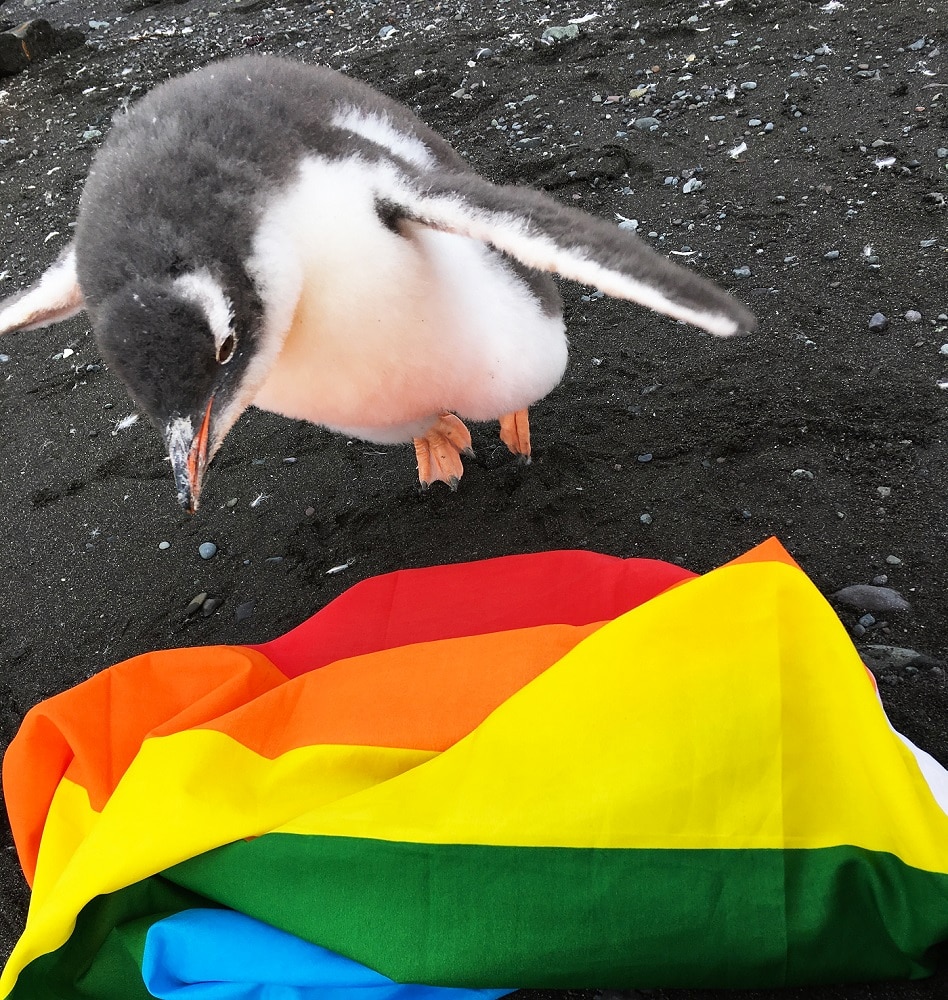The village of Kuujjuaq in Quebec, Canada celebrating its first ever Pride (Facebook/Isabelle Dubois)
More than five decades since the Stonewall Riots sparked the modern LGBT+ rights movement, new Pride movements and events are still emerging every year.
All around the world queer communities are gathering to mark Pride month – some for the first time ever, many in countries where the fight for LGBT+ rights is still in its early days.
Here are some of the latest Pride parades we’ve welcomed in the last few years.
Havana, Cuba (2019)
Although homosexuality has long been decriminalised in Cuba, the inaugural Pride parade was not permitted by the country’s strict communist government.
Despite this, more than 100 activists took to the streets with rainbow flags in a rare public show of defiance in the tightly-controlled country.
They were met with a vast number of police and security service officials, according to the BBC, and only managed to make it a few blocks before several people were arrested.
Nevertheless, activist Raul Soublett told AP: “It was a complete success because we got so many people together despite all the expectations of government interference. It’s historic.”
Kuujjuaq, Canada (2021)
This year the tiny Inuit community of Kuujjuaq in Quebec, Canada happily celebrated its first ever Pride parade, “sharing a message of hope for freedom of choice and acceptance for all”.
The event was reportedly attended by around 80 people, who marched through the village carrying rainbow flags and signs while wrapped in warm clothing.
“The group had lots of positive feedback and everyone was excited and glad that Kuujjuaq had its first Pride parade,” said organizer Aputi Unatweenuk.
Kathmandu, Nepal (2019)
Although Nepal has celebrated the LGBT+ community at events since 2002, activists were keen to hold an independent Pride parade to increase LGBT+ visibility in the Himalayan country.
“There has always been a romanticisation of Nepal as being one of the more tolerant countries in Asia; however, the ground reality is very different. The laws are not actually implemented, making it more difficult for our community,” trans campaigner Rukshana Kapali told the Himalayan Times.
The first official march in Pride season took place in 2019, organised by the Queer Youth Group and the Queer Rights Collective, alongside other grassroots LGBT+ groups.
Haddon Township, USA (2021)
On 10 June more than 1,000 people marched in the first Pride at Haddon Township, a community of around 15,000 residents in New Jersey.
The parade, which kicked off several days of events, featured more than 50 civic groups and entertainers including local drag queens and high school marching bands.
“They say small towns are where change happens and we believe that Haddon Township has created positive momentum for not only our LGBTQIA+ community, but the community as a whole,” said Isis Williams, president of the Haddon Township Equity Initiative.
Georgetown, Guyana (2018)
LGBT+ activists and allies gathered in Guyana’s capital city to peacefully protest the country’s anti-LGBT+ legal and social discrimination in its first Pride parade.
It was a bold statement in a country where homosexuality is still punishable by up to life in prison. Although these colonial-era laws are rarely enforced, participants knowingly risked arrest to celebrate their proud community.
“Our existence is resistance!” tweeted the Caribbean Equality Project after the event. “The parade was well attended, safe, but most of all, a demonstration against hate and bigotry and a celebration of love.”
#Guyana_Pride
A Proud Moment to celebrate the exsistence of LGBTQ+ Citizens in Guyana pic.twitter.com/S5PdblZn7b— Guyana Trans United (@trans_guyana) June 3, 2018
Sarajevo, Bosnia (2019)
Several thousand people marched in Bosnia’s first Pride parade in September 2019, protected by a major security operation including anti-sniper units after some conservative Muslim groups organised counter-rallies.
The event received overwhelming criticism from religious groups and politicians, with party leader accusing the march of literally “destroying the state and its people”.
Despite the melodramatic outcry, around 2,000 successfully joined the event without any violent incidents.
Antarctica (2018)
Ten Antarctic residents – and no, they weren’t penguins – made history by showing their support for LGBT+ rights on the southernmost continent in 2018.
The employees of the McMurdo research station decided to celebrate in April, not during Pride month in June, as by then there would be only two days remaining before the sun left the sky entirely and the South Pole entered into four months of darkness.
As Antarctica is technically governed by the United Nations, which protects LGBT+ people under its Universal Declaration of Human Rights, it remains the first and only continent to be fully supportive of the LGBT+ community.

